★★★★
“Dutch treat”

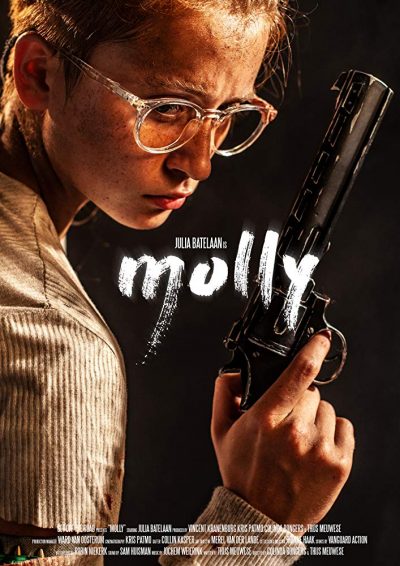 Up to a certain point (which I’ll get to in a bit), this low-budget post-apocalypse picture from the Netherlands has been solid if unspectacular. The limited resources have shown themselves in a world which almost entirely consists of running about sand dunes and light forest. The fight scenes have been grubbily realistic rather than impressive, with the kind of amateur flailing around with limited weaponry you’d probably actually see after armageddon has actually taken place. And the main focus of the plot has been the usual warlord type, Deacon (Bolt) who turns people into “supplicants” – drug-crazed pit-fighters for his personal amusement. Standard practice for a post-apocalyptic leader, really.
Up to a certain point (which I’ll get to in a bit), this low-budget post-apocalypse picture from the Netherlands has been solid if unspectacular. The limited resources have shown themselves in a world which almost entirely consists of running about sand dunes and light forest. The fight scenes have been grubbily realistic rather than impressive, with the kind of amateur flailing around with limited weaponry you’d probably actually see after armageddon has actually taken place. And the main focus of the plot has been the usual warlord type, Deacon (Bolt) who turns people into “supplicants” – drug-crazed pit-fighters for his personal amusement. Standard practice for a post-apocalyptic leader, really.
The main point of note is the titular heroine (Batelaan), who runs – entirely deliberately, I suspect – counter to expectations of what such a woman would be like. Molly is a scrawny teenage red-head, almost helpless without her glasses, and as noted above, hardly skilled in the martial arts – Imperator Furiosa, she is not, shall we say. She does have some assets: she’s not bad with a bow and arrow, and has a pet hawk. Most significantly, she has some kind of psychic abilities, that tend to come out when she’s upset. It’s these which bring her to the attention of Deacon, and to ensure she complies with his interests, the warlord kidnaps Bailey (de Paauw), the kid whom Molly has just befriended.
Which brings us to where this goes from “Not bad, works within its limits quite nicely, though not exactly original” to “This one’s a keeper”. Because Molly storms the off-shore stronghold where Deacon is keeping Bailey. In one 30-minute take. Okay, it’s clearly as much “one take” as Hitchcock’s Rope was – you can spot any number of moments where cuts have taken place. Yet, even attempting to put something like this together is extraordinarily ambitious for any low-budget film, and that the result works as well as it does, is simply amazing. The segments pitting Molly against Deacon’s lieutenant, Kimmy (Appelhof) and her mechanically-enhanced arm, are particularly well-done.
Some of the earlier scenes are shot similarly and work as appetizers; yet about eight minutes into the grand finale, I still suddenly went, “Hang on. When was the last cut?” If you’re like me, you’ll immediately be rewinding to watch it from the beginning. Elsewhere, the film is helped by crisp cinematography and an effective soundtrack, which sounds bigger budget than the movie. Perhaps wisely, the directors keep Batelaan’s performance largely driven by her actions rather than her dialogue. She fares considerably better than Bolt in this regard, and the ending is almost painfully abrupt.
All told though, and despite the over-familiarity of some aspects, the elements that are new and refreshing are really new and refreshing, from the non-fighting through to the awkwardness of the heroine. However, it’s the glorious mess of her final battle, which will stick in the mind of just about anyone who watches this. The trailer won’t prepare you for that level of awesomeness.
Dir: Colinda Bongers and Thijs Meuwese
Star: Julia Batelaan, Joos Bolt, Emma de Paauw, Annelies Appelhof





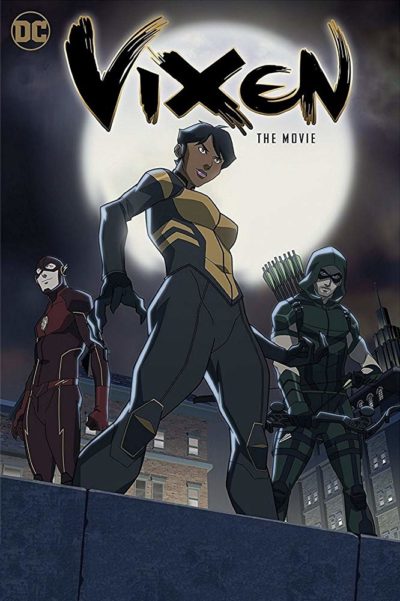 Having dipped my toe into the animated DC World with their 2009 version of
Having dipped my toe into the animated DC World with their 2009 version of  If you think children are of one mind with regard to the gun debate, thanks to the zealots of Marjory Stoneman, the alternative view portrayed by this movie will feel amazingly transgressive and almost alien. The world it depicts is one where schools will actually teach kids how to use guns safely, handing out gun permits, and a teenage girl can receive a treasured family heirloom, in the shape of a .30-30 rifle, passed down the generations. Hunting is a way of life, and an important resource, with a particularly strong matriarchal tradition, in which three generations of women will be going into the woods together. For 12-year-old Florence (Abas), it’ll be her first excursion: in a not-too-subtle parallel, she also gets her first period.
If you think children are of one mind with regard to the gun debate, thanks to the zealots of Marjory Stoneman, the alternative view portrayed by this movie will feel amazingly transgressive and almost alien. The world it depicts is one where schools will actually teach kids how to use guns safely, handing out gun permits, and a teenage girl can receive a treasured family heirloom, in the shape of a .30-30 rifle, passed down the generations. Hunting is a way of life, and an important resource, with a particularly strong matriarchal tradition, in which three generations of women will be going into the woods together. For 12-year-old Florence (Abas), it’ll be her first excursion: in a not-too-subtle parallel, she also gets her first period.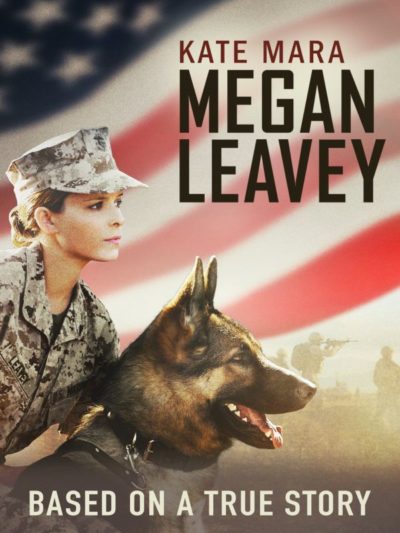 The crossing of war and animal genres of film isn’t one with much precedent, and you can see why: it would be difficult to balance those disparate elements. While this does a laudable effort, and manages to avoid sliding too far into the slippery road of sentimentality, it offers few surprises, even if you don’t know the true story on which it’s based.
The crossing of war and animal genres of film isn’t one with much precedent, and you can see why: it would be difficult to balance those disparate elements. While this does a laudable effort, and manages to avoid sliding too far into the slippery road of sentimentality, it offers few surprises, even if you don’t know the true story on which it’s based.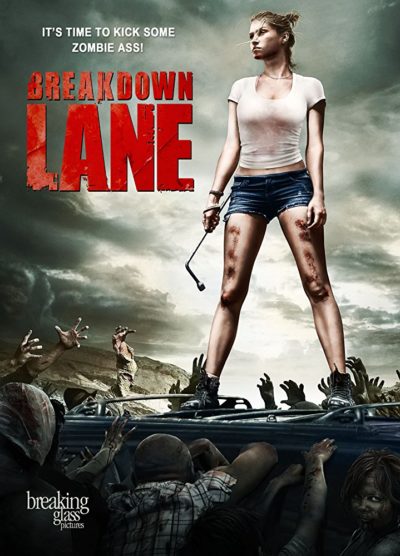 An initial twist on the zombie apocalypse and an appealing heroine aren’t enough to save this. By the end, while said heroine has transformed into a mayhem-dealing machine, any fresh elements have been discarded, for a low-budget rehash of ones which we’ve seen far too often already. It starts intriguingly, with Kirby Lane (Moore) “ambushed” by a woman in a camper with a sick man at a gas station, while on the way to meet her boyfriend (Cushing). When her car breaks down in the middle of absolutely nowhere, the only connection to the outside world is Max (Howell), the agent for her on-board emergency help provider. But things in the outside world are deteriorating rapidly, and the tow-truck Max dispatches… well, let’s just say, it might be a while. Meanwhile, Kirby has to handle the perils which threaten her, including humans both infected and cannibalistic, as she tries to fulfill her promise to link up with Max.
An initial twist on the zombie apocalypse and an appealing heroine aren’t enough to save this. By the end, while said heroine has transformed into a mayhem-dealing machine, any fresh elements have been discarded, for a low-budget rehash of ones which we’ve seen far too often already. It starts intriguingly, with Kirby Lane (Moore) “ambushed” by a woman in a camper with a sick man at a gas station, while on the way to meet her boyfriend (Cushing). When her car breaks down in the middle of absolutely nowhere, the only connection to the outside world is Max (Howell), the agent for her on-board emergency help provider. But things in the outside world are deteriorating rapidly, and the tow-truck Max dispatches… well, let’s just say, it might be a while. Meanwhile, Kirby has to handle the perils which threaten her, including humans both infected and cannibalistic, as she tries to fulfill her promise to link up with Max. Oh, be afraid… Be
Oh, be afraid… Be  The 16-part series proved an unexpected sleeper hit in its native land, more than doubling the audience from debut to finale. This is all over the place in terms of genre, with comedy, thriller, romance and action threads. While they aren’t equally successful, it does a pretty decent job of managing most of them, and is surprisingly accessible for a Western audience. The heroine is Do Bong-soon (Park B-Y), the latest in a matriarchal line of very strong women. She has been brought up to keep her power suppressed, due to the potential issues it can cause; Bong-soon has also been warned that if she misuses them, and hurts an undeserving person, they will go away. [Let’s not worry too much about how this presents an easy solution: slap one innocent, and she would become just like everyone else…]
The 16-part series proved an unexpected sleeper hit in its native land, more than doubling the audience from debut to finale. This is all over the place in terms of genre, with comedy, thriller, romance and action threads. While they aren’t equally successful, it does a pretty decent job of managing most of them, and is surprisingly accessible for a Western audience. The heroine is Do Bong-soon (Park B-Y), the latest in a matriarchal line of very strong women. She has been brought up to keep her power suppressed, due to the potential issues it can cause; Bong-soon has also been warned that if she misuses them, and hurts an undeserving person, they will go away. [Let’s not worry too much about how this presents an easy solution: slap one innocent, and she would become just like everyone else…]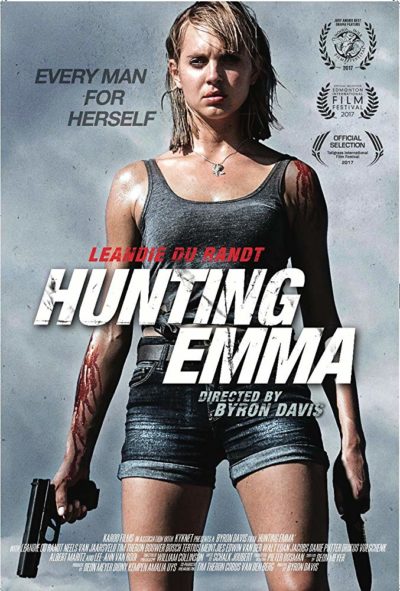 Actually, that’s unfair. For this was released in its home country of South Africa in March 2017, six months
Actually, that’s unfair. For this was released in its home country of South Africa in March 2017, six months  Riley Connors (Kane) is a CIA analyst, who quits her job and blows the whistle on secret government surveillance programs. Having pulled an Edward Snowden, she hides out in Colombia, helped by the reporter who broke her story. Her peace is short-lived: a knock on the door proves to be a local cop, working in conjunction with Bill Donovan (Weber), her former CIA colleague and lover. He comes with a proposition. Help them take down a pair of shady Cuban banking brothers (Espitia and Browner) who are suspected of funding domestic terrorism, and she’ll be able to return to the United States, with the slate wiped clean. It’s a very risky proposition, even if her reputation as an enemy of the state might be the perfect “in” to the targets’ organization. But can Bill be trusted either?
Riley Connors (Kane) is a CIA analyst, who quits her job and blows the whistle on secret government surveillance programs. Having pulled an Edward Snowden, she hides out in Colombia, helped by the reporter who broke her story. Her peace is short-lived: a knock on the door proves to be a local cop, working in conjunction with Bill Donovan (Weber), her former CIA colleague and lover. He comes with a proposition. Help them take down a pair of shady Cuban banking brothers (Espitia and Browner) who are suspected of funding domestic terrorism, and she’ll be able to return to the United States, with the slate wiped clean. It’s a very risky proposition, even if her reputation as an enemy of the state might be the perfect “in” to the targets’ organization. But can Bill be trusted either? Oh, dear. A misbegotten concept – Sweet Home Alabama crossed with Rocky – doubles down with shaky execution, and a non-stop parade of painfully obvious cliches in both characters and plot, to startlingly poor effect. As evidence of the first, imagine a film about a man, dumped by his girlfriend, who decides that beating her up is appropriate revenge. This would not exactly be anyone’s idea of comedy gold. But the makers here think that, simply by reversing the genders, it becomes so. They are very much mistaken. I believe I laughed once.
Oh, dear. A misbegotten concept – Sweet Home Alabama crossed with Rocky – doubles down with shaky execution, and a non-stop parade of painfully obvious cliches in both characters and plot, to startlingly poor effect. As evidence of the first, imagine a film about a man, dumped by his girlfriend, who decides that beating her up is appropriate revenge. This would not exactly be anyone’s idea of comedy gold. But the makers here think that, simply by reversing the genders, it becomes so. They are very much mistaken. I believe I laughed once.